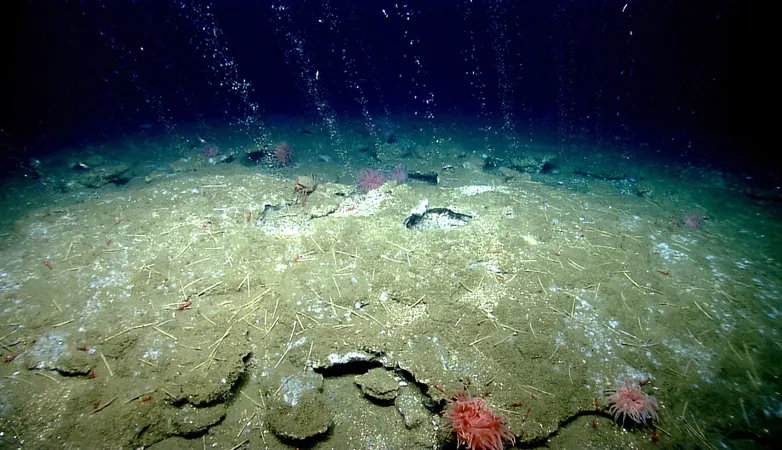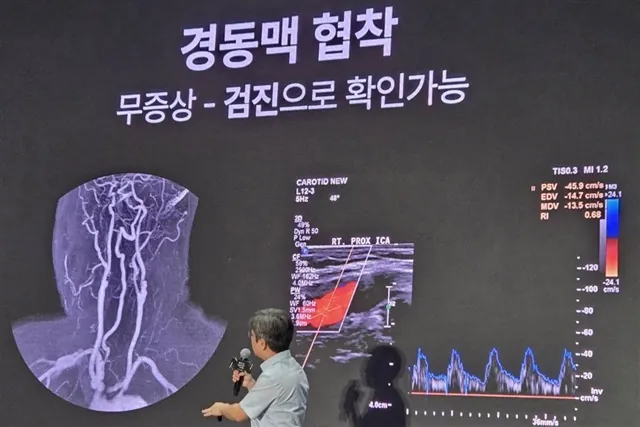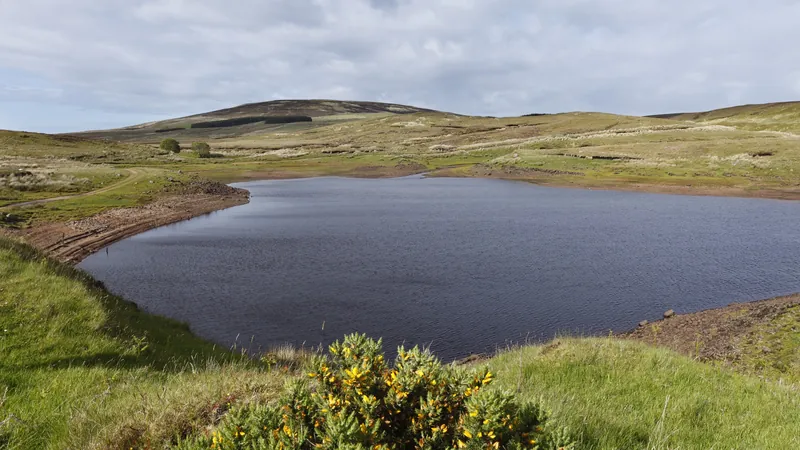
How Tiny Microbes Are Teaming Up to Battle Climate Change!
2025-08-22
Author: Li
Imagine a hidden army of tiny microbes working together to tackle one of the planet's most dangerous greenhouse gases, methane! An international team of scientists, led by researchers from the USC Dornsife College, has unveiled a groundbreaking discovery: how these microbes form a living electrical network to devour methane before it escapes into the atmosphere.
The Living Filter for Greenhouse Gases
Methane, a potent greenhouse gas, is constantly seeping up from the ocean floor into our atmosphere. But thanks to these microscopic warriors, a portion of it is being consumed in a remarkable partnership that could radically change how we manage methane emissions in the future.
Meet the Dynamic Duo: ANME and SRB
In this exciting study published in Science Advances, researchers explored the unique collaboration between two distinct types of microbes: anaerobic methanotrophic archaea (ANME) and sulfate-reducing bacteria (SRB). Alone, neither can convert methane, but together, they create a process that transforms the gas into less harmful substances.
When ANME break down methane, they release electrons that require an accepting partner—here's where SRB come to the rescue! By taking these electrons and transferring them to sulfate, SRBs power their own metabolism, allowing this essential methane consumption to continue.
Revolutionary Research Methods
The international research team, which includes experts from Caltech, Peking University, and the Max Planck Institute, utilized advanced electrochemical techniques to measure this unique electron exchange for the first time. They gathered samples from several marine methane seeps around the globe, including the Mediterranean Sea and California coast.
Microbial Guardians of the Planet
These microbial partnerships operate like Earth's natural sentinels, crucially limiting methane release into the atmosphere and oceans. "Understanding how these partnerships function reveals the resilience of life, even in extreme environments," explained Hang Yu, the study's lead author, who has been researching this phenomenon for nearly a decade.
A Small Discovery with Big Implications
The findings shed light on the significant influence of microbial activities on global processes, often underestimated by society. Victoria Orphan, a co-author of the study, stated, "It’s astonishing that even in the most remote corners of our planet, microbes collaborate intricately to affect our shared environment. This discovery highlights the immense potential hidden in ecosystems we are only beginning to understand.
The Future of Greenhouse Gas Management?
This research opens new avenues for innovative strategies to mitigate methane emissions, potentially aiding efforts to combat climate change. As scientists dive deeper into the world of microbes, who knows what other revelations lie in wait to help save our planet?




 Brasil (PT)
Brasil (PT)
 Canada (EN)
Canada (EN)
 Chile (ES)
Chile (ES)
 Česko (CS)
Česko (CS)
 대한민국 (KO)
대한민국 (KO)
 España (ES)
España (ES)
 France (FR)
France (FR)
 Hong Kong (EN)
Hong Kong (EN)
 Italia (IT)
Italia (IT)
 日本 (JA)
日本 (JA)
 Magyarország (HU)
Magyarország (HU)
 Norge (NO)
Norge (NO)
 Polska (PL)
Polska (PL)
 Schweiz (DE)
Schweiz (DE)
 Singapore (EN)
Singapore (EN)
 Sverige (SV)
Sverige (SV)
 Suomi (FI)
Suomi (FI)
 Türkiye (TR)
Türkiye (TR)
 الإمارات العربية المتحدة (AR)
الإمارات العربية المتحدة (AR)